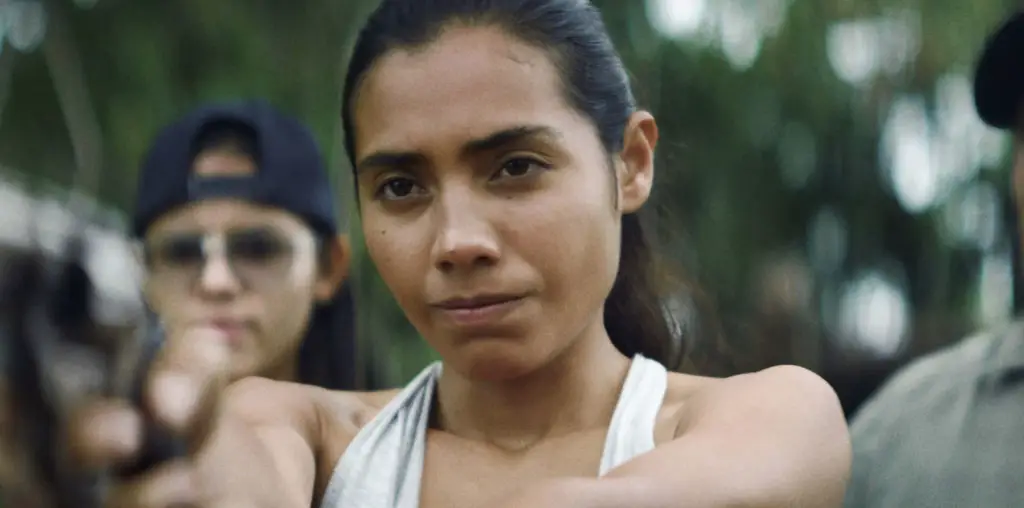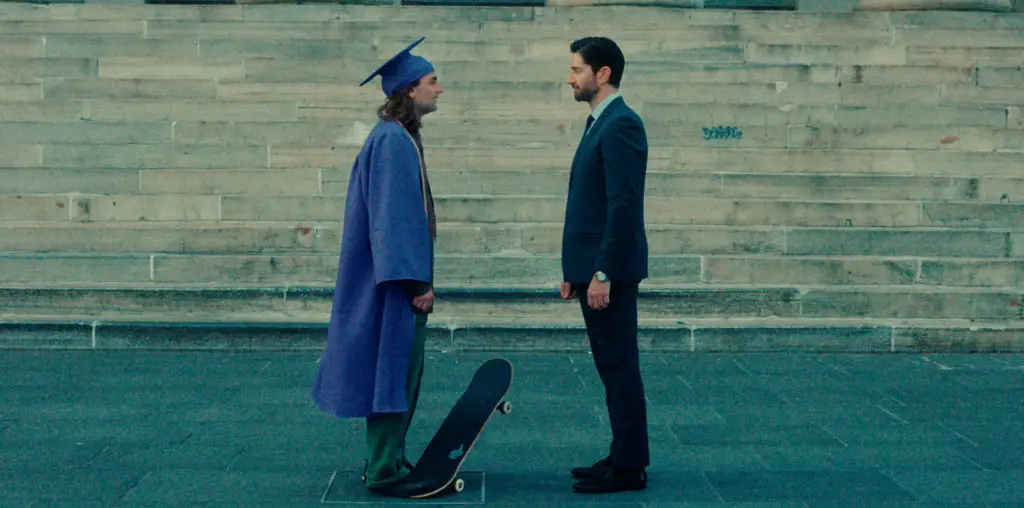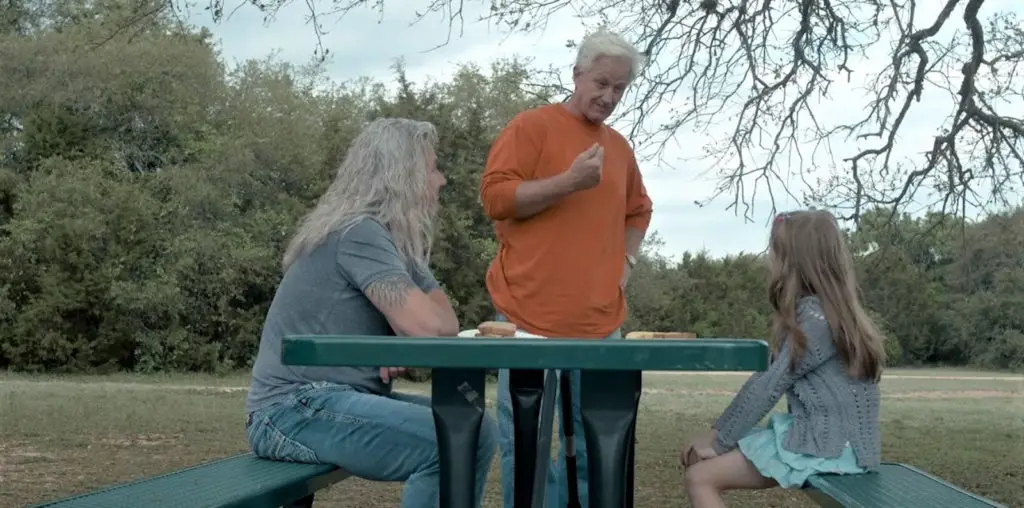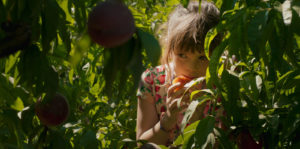
A central part of Carla Simón’s drama, Alcarràs, unravels a traditional Catalan celebration involving competitive drinking, dance, and a talent show. And a wholesome sequence featuring a family supper emphasizing local cooking styles and cuisines speaks highly of the director/co-writer’s documentarian style. Just like every household, even under duress, there are waves of laughter, giggles, traditional feasts, and many smiles. Three generations of men, women, and children hold on to hope in the face of an uncertain future.
In the agricultural outskirts of Lleida, Catalonia, resides the Solé family, who make their livelihood off sowing and harvesting peaches. However, the happy family comes to a standoff with the landowner, young Joaquim Pinyol (Jacob Diarte). Pinyol wishes to graze the agricultural land to install solar panels, thus, breaking off a promise his grandfather made that the Solés will always remain unofficial harvesters and owners of the land.
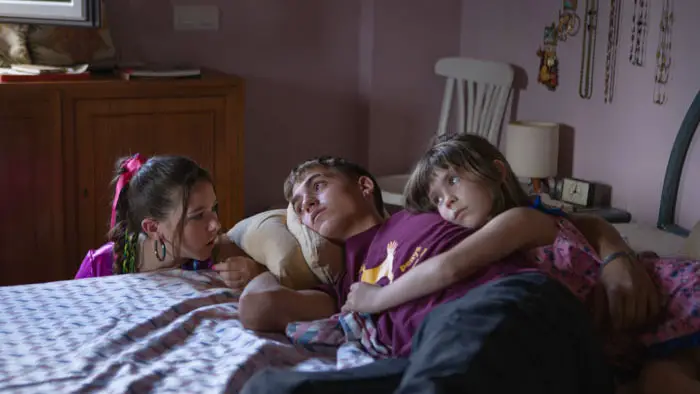
“…install solar panels, thus, breaking off a promise his grandfather made that the Solés will always remain unofficial harvesters and owners of the land.”
But another crisis must be dealt with, as it’s not just the land the family is about to lose. It’s the Solé legacy that’s in jeopardy. For the family patriarch and retired eldest, Rogelio (Josep Abad), it’s the only purpose he has known. For Quimet (Jordi Pujol Dolcet), his son and head of the family, it’s his pride and his family’s bread and butter. And for the youngest child in the family, Iris (Ainet Jounou), it’s her phenomenal play area that houses her favorite rusted and discarded car she calls her and her cousins’ den. And while the connections they share with harvesting peaches in the scorching heat are specific to individuals, there’s this collective harmony of togetherness that it brings to everyone’s lives.
Alcarràs emphasizes thematic discussions of issues the Solé family faces. Quimet must deal with the unfair pricing of their products that retail chains and distributors offer the farmers. There’s an impending threat of evacuation that Rogelio helplessly struggles with. Rabbits are littering over the lands, which Quimet must shoot down before his harvest collapses. And then there’s a stretched-out impact of all of this on the whole community. However, the driving force of the drama is mainly the subplots involving specific people, which resonate beyond any particular tale.
The narrative takes you through separate arcs of how each family member deals with this unprecedented and unwanted change. As they gaze over the lake, they see trucks and solar panels slowly consuming their traditional way of life, bringing an imminent dissolution of their farm in the name of progress. Simón and co-writer Arnau Vilaró layer several sweet and bitter moments in each journey and gives everyone their own outspoken significance. This commentary on capitalism and the destabilization of traditional farming takes us through remarkably natural documentation of the filmmaker’s experiences as a native of Catalonia.
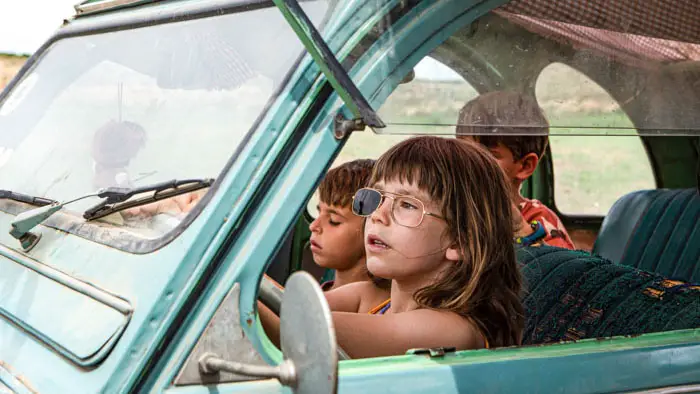
"…[a] grounded and humane representation of an entire culture and way of living."
